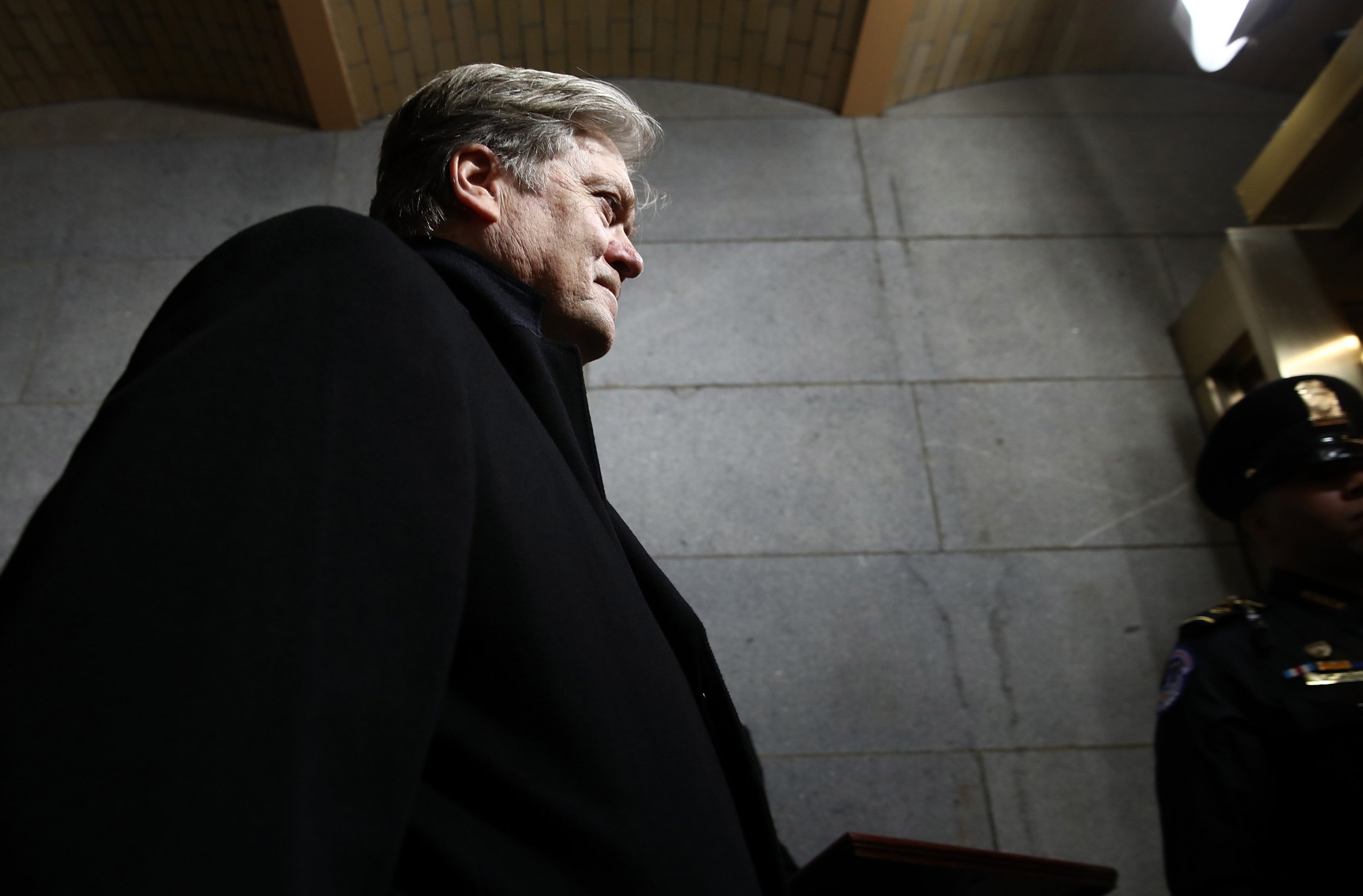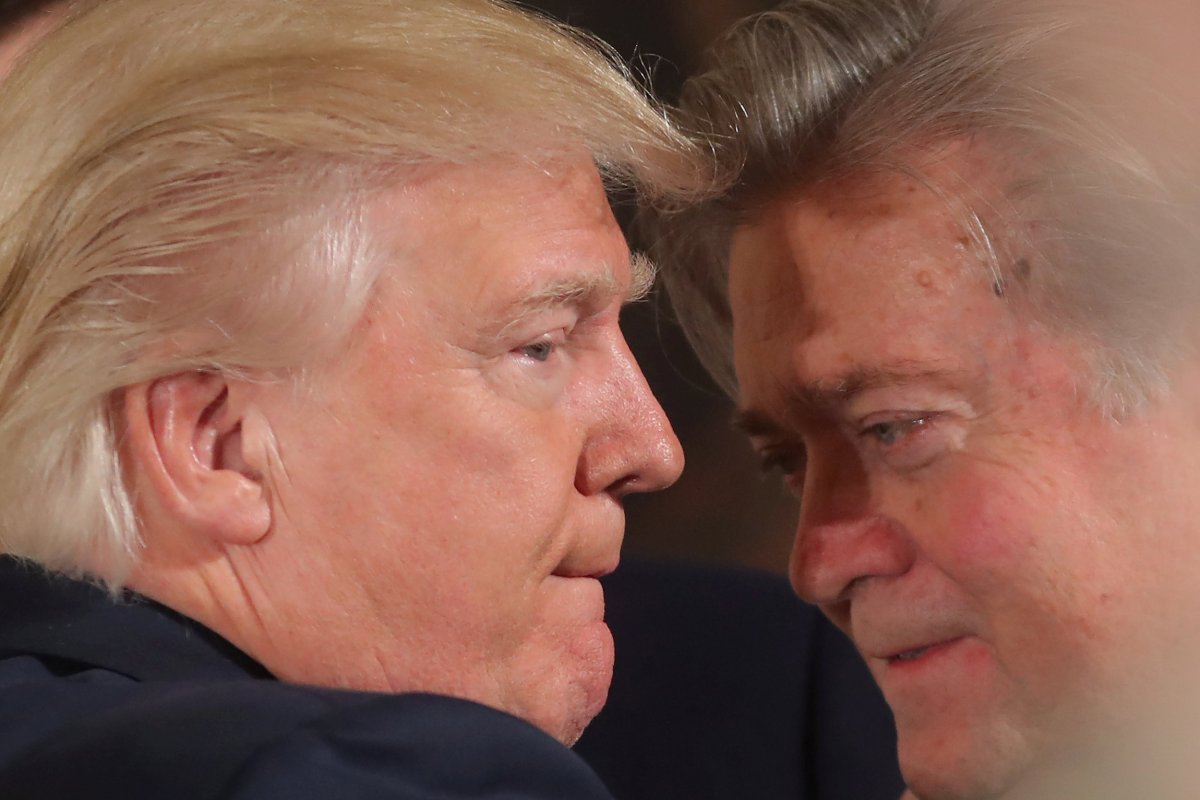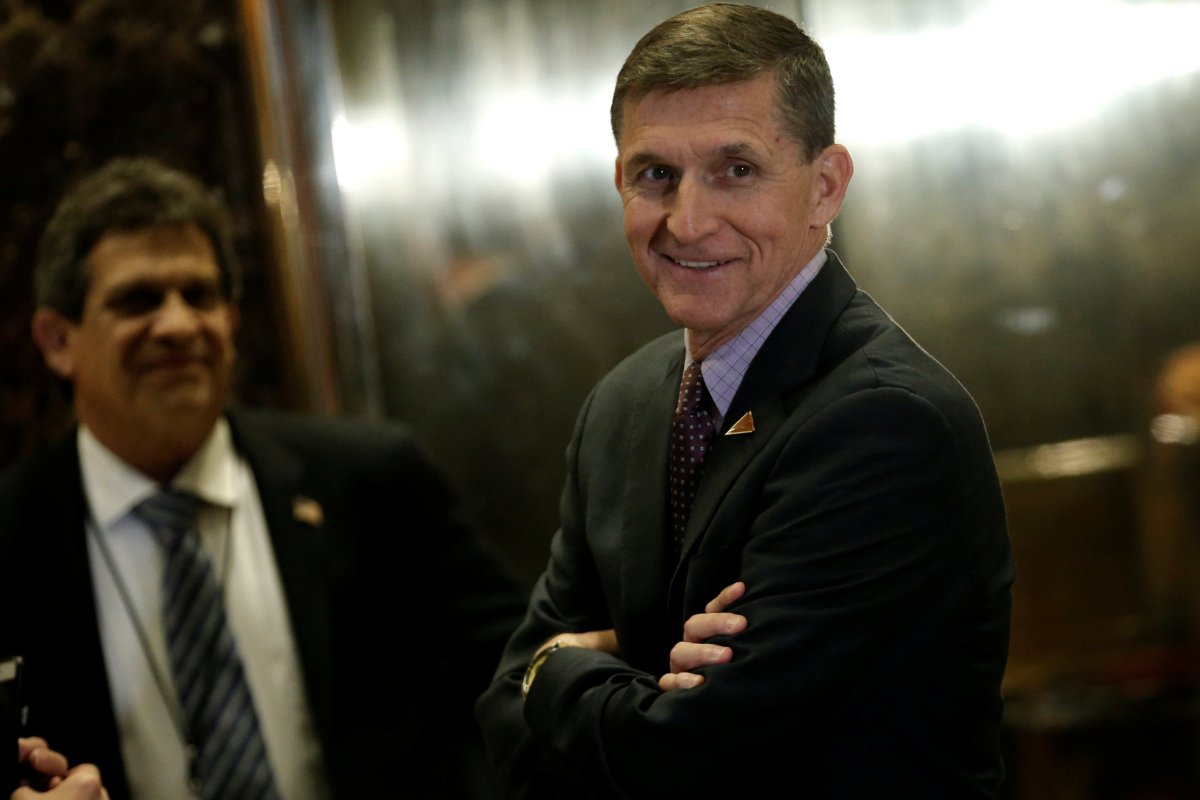
President Donald Trump's executive order to swap out his top military and intelligence chiefs from meetings of the National Security Council in favor of his controversial political adviser Steve Bannon drew furious reactions ranging from shock to disquiet over the weekend.
The move gives Bannon—a self-proclaimed "nationalist" who courted white supremacists and neo-Nazis as executive editor of the "alt-right" Breitbart News—a regular seat in top secret discussions conducted by the NSC's principals committee. The shuffle puts him "on par with the Secretaries of State, Defense, Homeland Security and Treasury" in the NSC, noted John Bellinger, a former State and Justice department official who served on the NSC in the George W. Bush administration.
RELATED: Spy veterans say Trump's ban will hurt recruitment
The move comes as multiple U.S. intelligence agencies and congressional committees pursue allegations of pro-Trump Russian meddling in the 2016 elections and Moscow's ties to and conversations with top advisers to the president.
Trump's executive order also removed the chairman of the Joint Chiefs of Staff and the director of national intelligence (DNI) from the principals committee. CIA Director Mike Pompeo is not listed as a member or invited participant in NSC or principals committee meetings, which follows the practice of the Obama White House. But John Brennan, Obama's CIA director, "did come to all" of the meetings, his former deputy chief of staff, Nick Shapiro, tells Newsweek.
Sen. John McCain of Arizona, chairman of the Senate Armed Services Committee, called Bannon's appointment a "radical departure from any National Security Council in history.
"The role of the chairman of the Joint Chiefs of Staff has been diminished, I understand, with this reorganization," McCain said on CBS's Face the Nation . "The one person who is indispensable would be the chairman of the Joint Chiefs of Staff, in my view. So it's of concern, this 'reorganization.'"
Likewise, Robert Gates, who has held high posts in both Republican and Democratic administrations—CIA director under President George H. W. Bush and defense secretary in both the George W. Bush and Obama administrations— called Bannon's promotion and the exclusion of DNI Dan Coats and Gen. Joseph Dunford, chairman of the Joint Chiefs of Staff, a "big mistake."
"My biggest concern is there are actually, under the law, only two statutory advisers to the National Security Council and that's the Director of Central Intelligence, or the DNI, and the Chairman of the Joint Chiefs of Staff. I think pushing them out of the National Security Council meetings, except when their specific issues are at stake, is a big mistake," he said on ABC's This Week. "I think that they both bring a perspective and judgment and experience to bear that every president, whether they like it or not, finds useful."
Susan Rice, former national security advisor during President Barack Obama's second term, ripped the reorganization as "stone cold crazy.
"Chairman of Joint Chiefs and DNI treated as afterthoughts in Cabinet level principals meetings. And where is CIA?? Cut out of everything?" Rice tweeted early Sunday.
"I've studied NSC my entire adult life," tweeted David Rothkopf, author of Running the World: The Inside Story of the National Security Council and the Architects of American Power . "Putting Bannon on it and making DNI and Joint Chiefs optional is lunacy," said Rothkopf, who is also the CEO and editor of the FP Group, publisher of Foreign Policy magazine. "Shows zero comprehension."
RELATED: Twitter users plead, 'stop President Bannon'
"This is unusual; the NSC function usually does not include participants from the political side of the White House," Bellinger wrote when breaking the story on the influential Lawfare blog Saturday. "In the Bush Administration, Karl Rove would not attend NSC meetings. According to former Chief of Staff Josh Bolten, President Bush did not want to appear, especially to the military, to insert domestic politics into national security decision-making."

Obama political adviser David Axelrod regularly attended NSC meetings, according to a former senior official who asked not to be named in exchange for speaking freely about the current White House machinations. But Axelrod tweeted Sunday that he "never sat on NSC principals comm.
"I sat on sidelines as observer on some issues 2 gain an understanding of decisions," Axelrod added. "Bannon's new ground."
While the order removed the chairman of the Joint Chiefs of Staff and the DNI from the principals committee, it said they "shall" attend meetings of the full NSC. But they can attend meetings of the principals committee only by invitation, "where issues pertaining to their responsibilities and expertise are to be discussed," the order states. Bellinger noted that "it may not be necessary or appropriate to invite the DNI and C/JCS to [principals meetings] concerning certain homeland security issues."
Beside Bannon, the big winner in the shuffle appears to be Trump's national security adviser Michael Flynn, a retired three-star U.S. Army general and former head of the Defense Intelligence Agency.
Critics in both parties were already alarmed about Flynn's apparent close ties to Russian officials and proclivity for alt-right conspiracy theories. On January 22, the Wall Street Journal reported that U.S. counter-intelligence agents were looking into conversations Flynn had with the Russian ambassador regarding Obama administration "sanctions and other measures against Russia in retaliation for its alleged use of cyberattacks to interfere with the 2016 U.S. election." Critics have suggested that Flynn may have counselled Moscow not to engage in a tit-for-tat retaliation for Obama's expulsion of alleged Russian spies here.
The attendance of DNI Coats and JCS chief Dunford "at the all-important [principals] meetings, where the real heavy lifting gets done...appears to be at the discretion of Mike Flynn," said the former senior official, who met frequently with President George W. Bush. "That's different. Very different."

The consolidation of the White House national security and homeland security staffs during the Obama administration also favors Flynn, the former senior official added, "since he is much closer to the president than his counterpart," Tom Bossert, assistant to the president for homeland security and counterterrorism.
"These elements suggest a further accrual of power at the White House at the expense of departments and agencies," the former official said.
Congressional Republicans grappling with the firestorm of Trump national security initiatives are almost all holding their fire on the NSC moves. None contacted by Newsweek would comment for the record on the NSC shakeup.
But White House spokesman Sean Spicer issued a ringing defense of Bannon's national security credentials.
"Well, he is a former naval officer," Spicer said of Bannon, who made a fortune in banking and filmmaking before taking over Breitbart News . "He's got a tremendous understanding of the world and the geopolitical landscape that we have now." He called Bannon's seven-year tour as a Navy lieutenant, which culminated in an assignment as a special assistant to the chief of naval operations at the Pentagon in the early 1980s, "significant."
"Having the chief strategist for the president in those meetings, who has a significant military background, to help make, guide what the president's final analysis is going to be," Spicer said on ABC's This Week, "is crucial."
Uncommon Knowledge
Newsweek is committed to challenging conventional wisdom and finding connections in the search for common ground.
Newsweek is committed to challenging conventional wisdom and finding connections in the search for common ground.
About the writer
To read how Newsweek uses AI as a newsroom tool, Click here.








